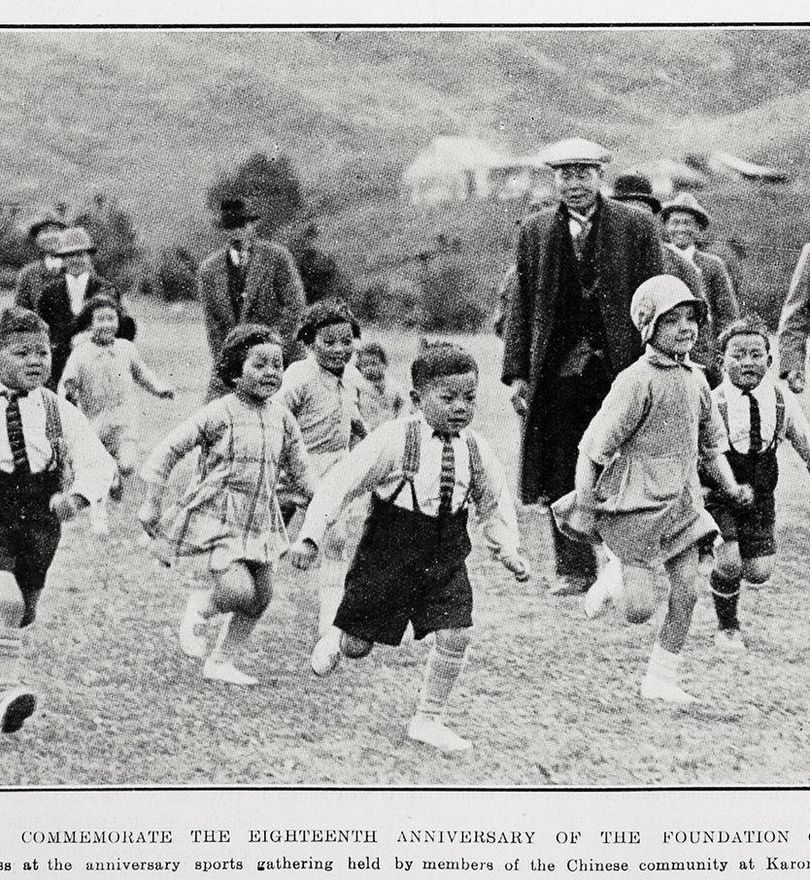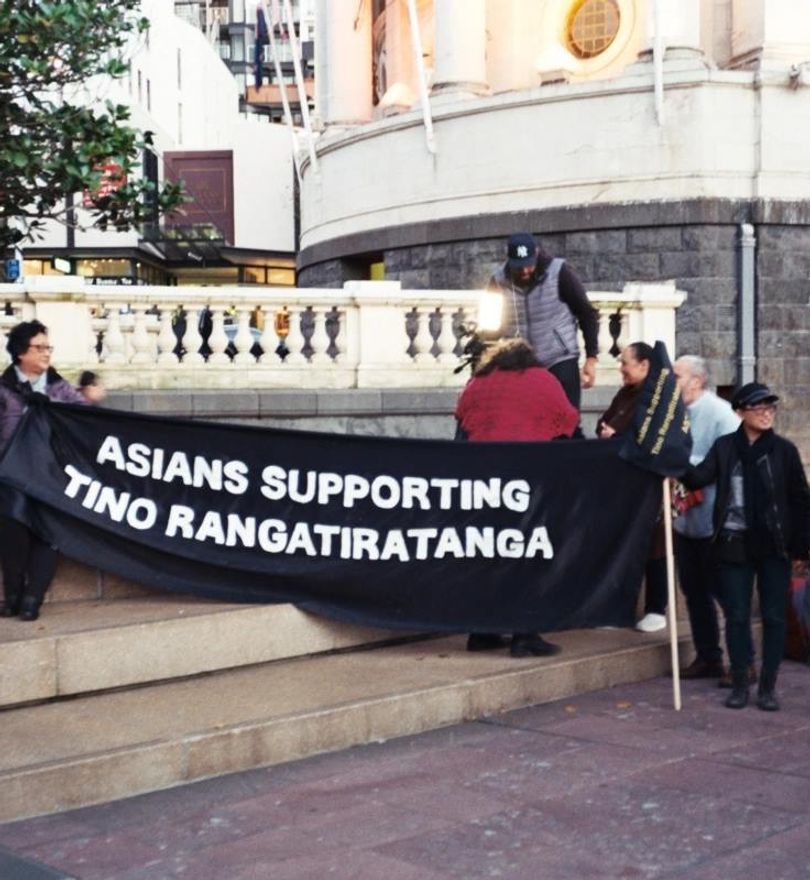
When I wrote ‘Race you there’ I feared that I was typing into the white literati void. Then … the essay found its way online and located the people for whom it was made. The response was astounding. … There was a common thread to this emotional intensity — not, I think, so much a reaction to the quality of the essay or the originality of its points, than the feeling that ‘we needed this’. An internal absence was speaking itself out. Hello Kitty had grown a mouth.
— From the 2005 postscript to ‘Race you there',1 which was originally published in 2004
Why was there such a reaction? Personal memoirs of identity and racism are commonplace in the Asian diaspora. I was far from the first Asian to write about racism and belonging. I was definitely not the first to advocate for our communities to work directly with Māori and embrace te Tiriti to fight white supremacy. Surely I was not the first person to say that I was no longer talking to white people about race. I knew for a fact that, behind closed doors, there were people challenging their long-established communities’ failure to stand in solidarity with newer migrants. Was it humanly possible that no other Asian here had ever written a left-wing political editorial? However, at the dawn of the online era, the essay was likely the first high-profile piece from a New Zealand Asian writer widely disseminated via the internet that was doing all of these things simultaneously, out in the open.
Over the years, people continue to tell me how the essay connected with them on a personal and emotional level, although, when rereading it, my strongest impression is that it is relentlessly political and highly prescriptive, practically a manifesto. I think we are still used to surviving on very little that speaks to us about our experiences, whether personal or political. This reinforces our own silences even among, and to, ourselves. Breaking the silence can be a shock.
Was it humanly possible that no other Asian here had ever written a left-wing political editorial?
In the years since its publication, ‘Race you there’ has entered university curricula and activist resource lists. In the work being done by grassroots organisations such as Asians Supporting Tino Rangatiratanga (ASTR), I see so many things eventuating that I called for and imagined. The constitutional knowledge and commitment among the growing number of young Asian Tiriti and anti-racism activists goes far beyond my essay’s anachronistic 1990s high-school emphasis on Tiriti “principles” rather than its actual Articles. But the core of what I said has been heard, remembered and, most gratifyingly, used and applied by those I was trying to reach.
Things are now increasingly normal that were never normal at the time of ‘Race you there’, back when I was searching for faces in the crowd — for better or worse.
Armed with social media tools and propelled by a growing strength in numbers, new generations of Asian radicals and misfits are able to find each other without the mediation of Pākehā-led movements, and organise far more easily as Asians in solidarity with Māori and other minorities. We got there. It really was just maths.
At the same time, although ‘Race you there’ was full of hurt and political vitriol, it was written at a time when I underestimated the strength of the backlash that awaited demographic challenges to white supremacy. The continual dismantling of the postwar social democratic consensus since the 1980s has been enabled specifically by the racialisation of poverty — this is leading to an erosion or even collapse of basic liberal democratic norms and institutions in many countries. Like climate change, we all knew it was bound to happen if things kept going like this — but seeing the shit hit the fan? That’s something else.
I underestimated the strength of the backlash that awaited demographic challenges to white supremacy.
As a political scientist of transitions between democracy and authoritarianism, I must emphasise that we have entered very dangerous new territory in Aotearoa. The resurgent fascism and conspiracy-fuelled racism, Islamophobia and queerphobia that has swept through democratic states since the 2016 watersheds of Brexit and Trump has now found a willing participant in the Aotearoa political discourse, which has succumbed to a fracturing of realities. I write this two weeks out from the 2023 election night, and it is now a fact of life here that far-right discourse is inciting political violence against female minority politicians, especially during election campaigns, and especially against Māori. We have seen this political violence being outright denied as real by increasingly extreme far-right politicians likely to be part of the incoming government of Aotearoa.
Yet again, “Asians” are faced with the choice of whom we should stand with when the far right is poised to strike. My answer hasn’t changed, even as our differences and divisions grow along with the size of our communities. But we can’t run away from each other forever. Because there will always be another attack, and with it, the frantic energy to bother each other again about what we should do. I was not the first to say this, and nor will I be the last.
— Tze Ming Mok, 2 October 2023


